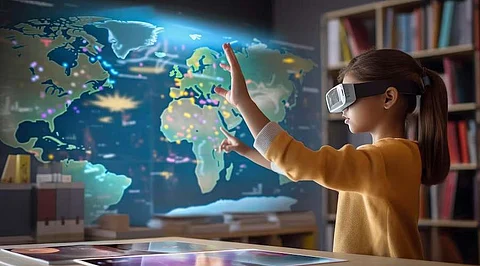

VR in Education allows for immersive and experimental learning. Science students need to understand how to experiment with objects to acquire varied results. Even the most difficult subjects are easy to understand when people use VR. The technology offers a platform for accumulating more knowledge. Virtual reality has the potential to significantly improve student engagement and learning outcomes in higher education when used effectively. Because of the advantages it offers, educators ought to incorporate it into the curriculum.
Improving learner engagement and inspiration: Students are limited to their imaginations, for instance, when learning about the solar system. They become fully absorbed in the system when VR is used. The experience increases their interest and inspires them more.
Better memory: Often college students quickly forget the lessons they learn. They are immersed in nearly real-life circumstances thanks to VR. They can still recall the subject and the lessons taught days afterward.
Boosting course outcomes: By assigning writing tasks to students, teachers can improve course outcomes. Higher-level results may be achieved with the aid of VR.
Building student socialization and collaboration: Cooperation is key to learning in college, both between students and between teachers. Students need to interact with others in order to improve their mental health. One technique to improve teamwork and socializing in colleges is through VR.
Join our WhatsApp Channel to get the latest news, exclusives and videos on WhatsApp
_____________
Disclaimer: Analytics Insight does not provide financial advice or guidance. Also note that the cryptocurrencies mentioned/listed on the website could potentially be scams, i.e. designed to induce you to invest financial resources that may be lost forever and not be recoverable once investments are made. You are responsible for conducting your own research (DYOR) before making any investments. Read more here.
